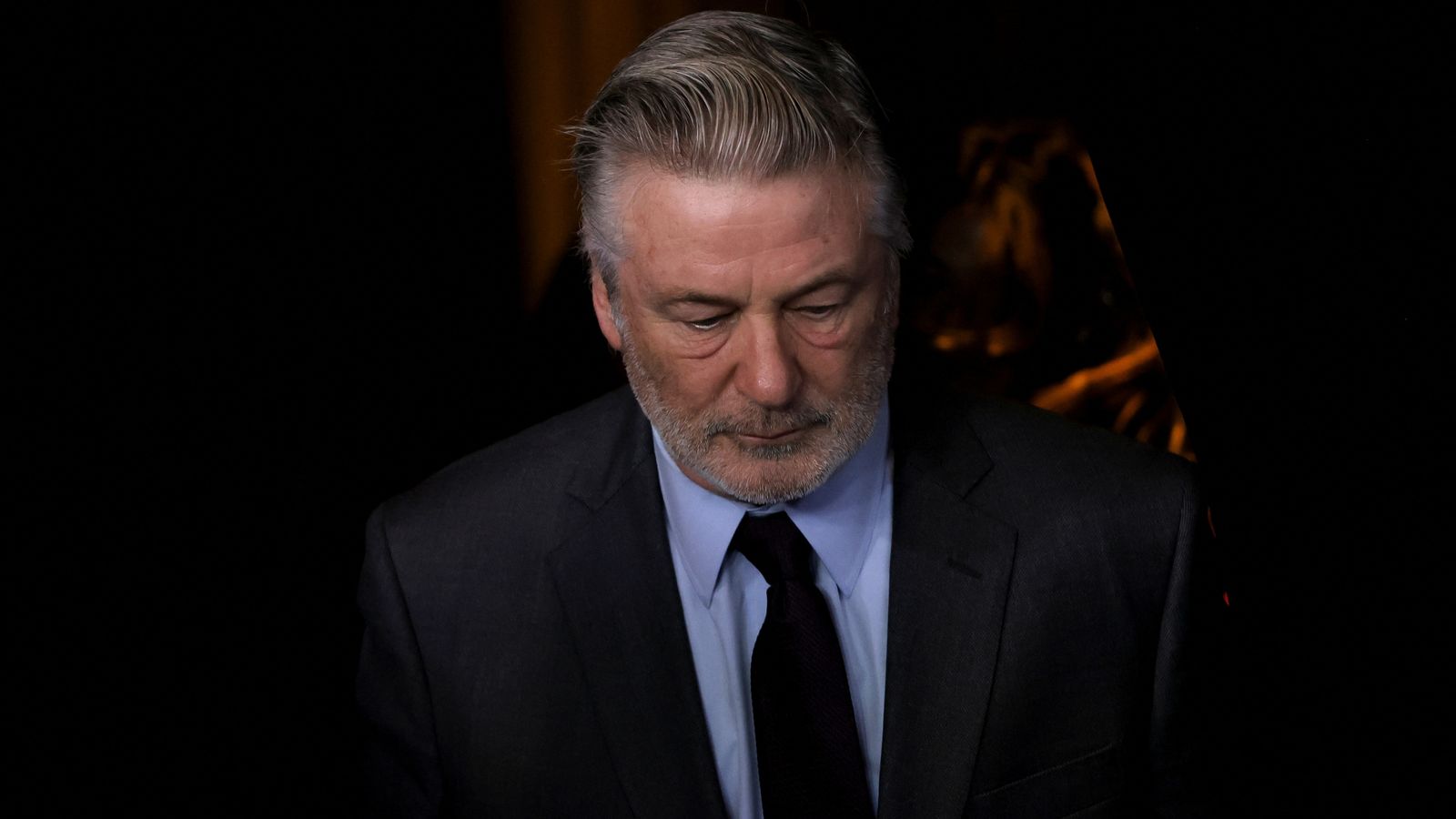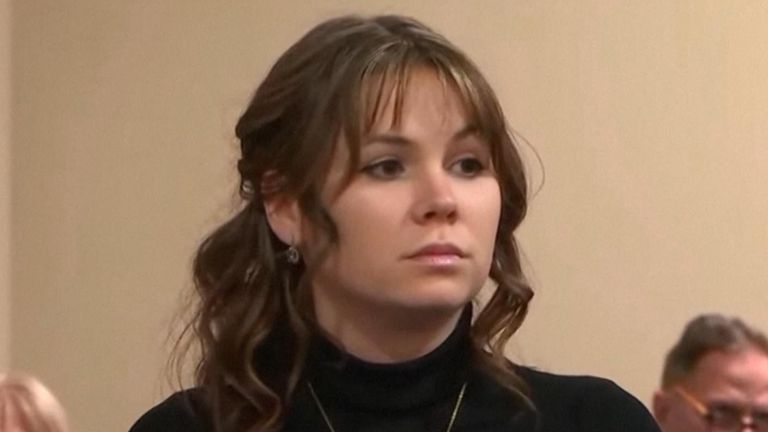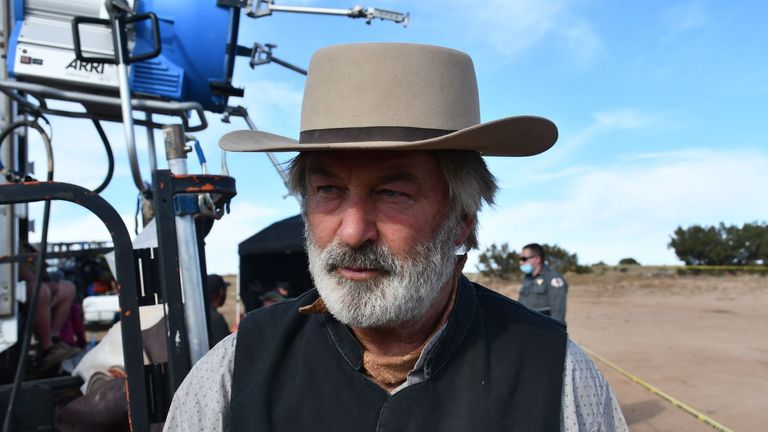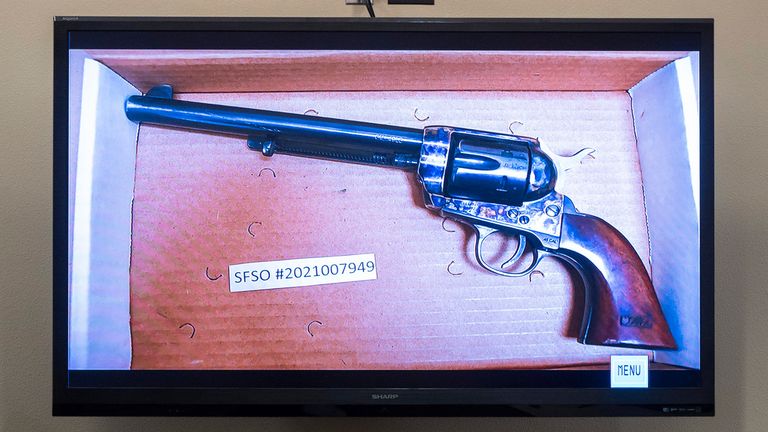The trial and conviction of a weapons supervisor over a deadly shooting on a movie set has given Alec Baldwin an unusual window into how his own trial could unfold.
Hannah Gutierrez-Reed was found guilty of involuntary manslaughter in the death of cinematographer Halyna Hutchins on the set of Rust, following fewer than three hours of deliberations by a jury.
She was swiftly taken into custody as she awaits sentencing in New Mexico, facing up to 18 months in prison.
Alec Baldwin was a prominent figure in testimony and closing arguments over two weeks that highlighted his authority as a co-producer and the lead actor on the movie.
Both the prosecution and defence lawyers in Gutierrez-Reed’s trial dissected video footage of Baldwin before the shooting for clues about breakdowns in firearms safety.
The 65-year-old’s trial is scheduled for July and will involve the same judge and prosecutors, and many of the same witnesses.
He has insisted that he pulled back the gun’s hammer, but not the trigger, and the weapon fired, killing Hutchins and wounding director Joel Souza.
Emily D Baker, a legal analyst and former Los Angeles deputy district attorney, who wasn’t involved in the case but followed it closely, said Baldwin’s legal team will hope to benefit from having seen how Gutierrez-Reed’s trial played out.
Dress rehearsal
“They’re in the incredible position of getting to watch this prosecutor in action, see how this judge works, and come in knowing exactly what these experts are going to say and how they present to the jury,” Ms Baker said.
“I don’t think Baldwin’s going to want to deal in this case, and I think his legal team will tell him this is a very different case than the case against Hannah.”
Ms Baker said a weapons expert for the prosecution in Gutierrez-Reed’s case gave strong testimony, but that it was aligned with what Baldwin’s team has been saying all along – that it wasn’t his job to check the weapon.
Expert witness and movie firearms consultant Bryan Carpenter testified that images showed Baldwin firing blanks toward a camera within a “no-go” zone at close range, flouting safety protocols as he ordered crew members to quickly reload his revolver, and waving a gun like a pointing stick after the close of one scene.
Another clip captures the sound of Baldwin firing a gun after a director calls out, “Cut!”
Investigators have not found any video recordings of the shooting, which took place during a rehearsal inside a makeshift church in October 2021.
But Gutierrez-Reed’s trial included previously undisclosed testimony from eyewitnesses to the shooting.
They included Souza, who felt the shock of a bullet’s impact as he moved in for a view of the camera monitor – but never saw the gun that shot him.
A camera-dolly operator and the assistant director, Dave Halls, also gave visceral accounts of the revolver firing and the aftermath.
Script writer Mamie Mitchell, meanwhile, testified that the script did not call for Baldwin to point the gun.
‘Trigger had to be pulled’
“Alec Baldwin’s conduct and his lack of gun safety inside that church on that day is something that he’s going to have to answer for,” prosecutor Kari Morrissey said in her closing arguments against Gutierrez-Reed.
“Not with you and not today. That’ll be with another jury, on another day.”
Morrissey and co-counsel Jason Lewis presented the case against Baldwin to a grand jury in January and secured an indictment on the single felony count that gives them two pathways to prosecution.
A recent analysis of the weapon gave them the opportunity to reboot the case after an initial involuntary manslaughter charge against Baldwin was dismissed.
That analysis by Forensic Science Services in Arizona concluded “the trigger had to be pulled or depressed sufficiently to release the fully cocked or retracted hammer of the evidence revolver.”
The author of an earlier FBI report on the gun testified at the Gutierrez-Reed trial that the gun arrived with all safety features in working order, and that the only way the revolver would fire with the hammer fully retracted was to strike it with a mallet and break it.
Defence attorneys for Baldwin have shown no sign of compromise with special prosecutors appointed by Santa Fe area District Attorney Mary Carmack-Altwies, who is running for re-election and confronting a Democratic primary challenge by a former DA in June.
‘No one avoids culpability’
A February fundraising message from Ms Carmack-Altwies vowed justice for Ms Hutchins and her family “no matter who else is involved,” without naming Baldwin.
“No one avoids culpability due to fame, wealth, or connections in my jurisdiction,” she wrote.
During Gutierrez-Reed’s trial last week, one witness for the prosecution stated the obvious as a prosecutor asked, “Is Mr. Baldwin on trial today?”
“It appears that he is a bit, yes,” said Ross Addiego, a crew member who witnessed the fatal shooting at close range and has sued Baldwin in civil court.
The lawsuit is one in a series of legal actions, including wrongful death claims filed by members of Hutchins’ family, centered on accusations that the defendants were lax with safety standards. Baldwin and other defendants have disputed those allegations.
The filming of Rust moved to Montana after the shooting in New Mexico, under an agreement with Hutchins’ widower, Matthew Hutchins, that made him an executive producer.



